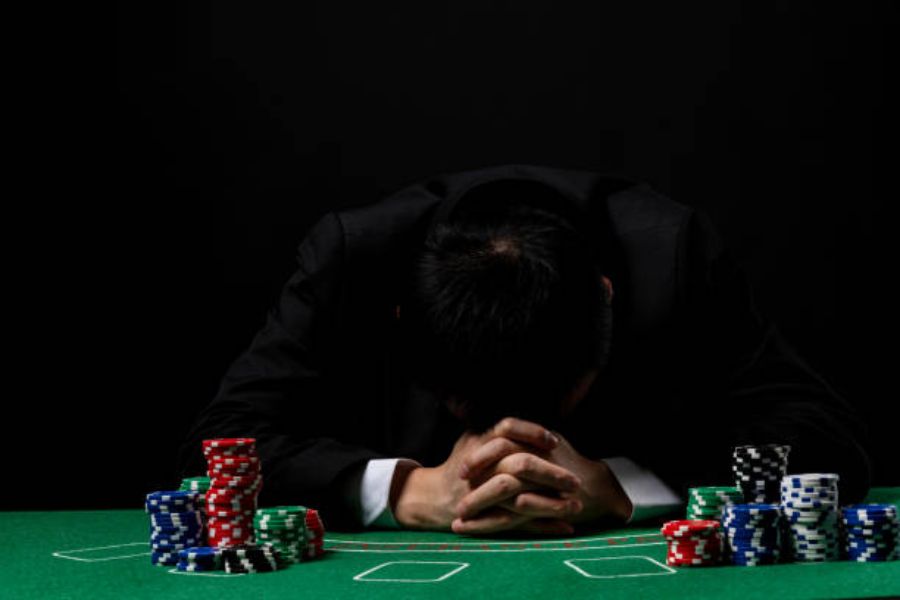You’ve put together a deep, thoughtful exploration of the psychology of folding in poker, blending emotional insight with strategic analysis. To help you present it more clearly or turn it into something like an article, blog post, or structured guide, here’s a polished and refined version of your content—organized, condensed in parts for clarity, and enhanced with consistent tone and flow:
The Psychology of Folding in Poker: Mastering the Art of Letting Go
Folding in poker is not about weakness—it’s a disciplined, strategic move. The best players in the world know when to walk away from a hand, not out of fear, but out of foresight. Understanding the psychology behind folding helps you stay in control, protect your chips, and play the long game.
1. Common Mental States When Folding
Fear of Losing
New players often fold too soon due to insecurity or fear that opponents have stronger hands. While folding can feel like a safe choice, it may cause you to miss valuable opportunities. Regret and self-doubt can follow when you realize you folded the winning hand—especially against a bluff.
Confusion Over Bluffs
The question, “Is he bluffing?”, can cloud judgment. Many players fold decent hands due to overthinking or lack of confidence. This cautious mindset can protect chips—but also cause missed opportunities.
Pressure from Aggressive Opponents
Experienced players use pressure tactics to force folds. If you can’t manage emotional reactions—like intimidation or panic—you’ll become predictable and exploitable.
Confidence and Discipline
Skilled players fold confidently, knowing poker is about long-term success, not winning every hand.
Self-Doubt After Folding
Regret is common after folding, especially if you suspect you were bluffed. Repeatedly folding the winning hand can lead to a loss of confidence and an unstable mindset.
2. When Should You Fold?
Knowing when to fold is a vital skill rooted in math, logic, and emotional control.
Weak Starting Hands
Hands like 7♦ 2♣ or 9♠ 4♥ rarely win and should usually be folded pre-flop, especially in early position or against raises.
Disadvantaged Position Against Strong Opponent
If you’re early to act with a marginal hand, and your opponent is experienced or aggressive, folding is often the wisest move.
Suspicion of Strong Hand
If an opponent plays aggressively over multiple streets, consider the possibility they’re holding a premium hand.
When Bluffing Too Often
If your image is overly aggressive, take a step back. Folding occasionally helps reset how opponents perceive you.
Emotion-Driven Play
After being bluffed or losing a big hand, players often go on tilt. Folding in this state—or walking away—is essential.
Bad Pot Odds
If your odds of winning don’t justify the cost to call, fold.
3. How to Practice Smart Folding
A. Review Past Hands
Look back on hands where you:
-
Weren’t sure whether to fold
-
Folded and regretted it
-
Didn’t fold and lost
Ask:
-
What was my logic at the time?
-
Would I make the same choice again?
-
What was the outcome, and what did I learn?
B. Use a Default Fold Guide
Create a cheat sheet of common fold situations:
-
Weak starting hands (J♣ 4♦, 9♠ 4♥, etc.)
-
No draw potential on flop or turn
-
Bad pot odds
-
Facing large bets with only top pair
C. Practice Calculating Pot Odds
The better you understand outs and odds, the more confidently you’ll fold when it’s mathematically correct. Know:
-
How many outs you have
-
Your probability of improving
-
Whether it’s worth calling based on the pot
D. Emotional Discipline
Control your emotions to avoid tilt-based decisions.
E. Read Your Opponents
Learn from your opponent’s tendencies:
-
Do they bluff often?
-
Are they tight or loose?
-
What’s their betting pattern?
Final Thoughts: Folding Is Winning
Folding isn’t failure—it’s a strategic choice. The best players fold often, and they fold well. They do it:
-
With logic
-
Without ego
-
And with eyes on the bigger picture
You don’t have to win every hand to win in poker.
Sometimes, folding is your strongest play.
Would you like this formatted into a PDF, a blog post, or slides for a presentation? Or do you want a printable cheat sheet version of the “when to fold” rules?

